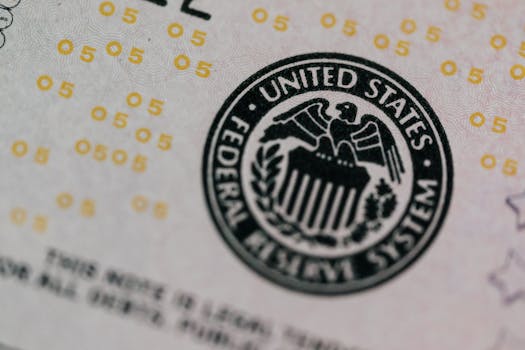Companies with the best and the worst fundamentals.
Lists of companies in NSE500 with the best and the worst fundamentals...
Lists of companies in NSE500 with the best and the worst fundamentals...
List of the latest important filings for NSE500....
Lists of companies in NSE500 with the best and the worst technicals...

ANZ's recent penalty highlights critical governance failures within the bank and offers...

This article outlines key economic indicators that investors should monitor ahead of...

This examination delves into the anticipated corporate earnings season, highlighting key sectors...

As the economic landscape continues to evolve, corporate treasury teams are facing a new challenge brought on by shifting interest rates. With the recent trend of declining rates, large companies with substantial cash reserves—like Berkshire Hathaway—may find their cash management strategies tested. Understanding the implications of lower interest rates on corporate cash holdings is crucial for treasury management, investment strategy, and overall financial planning.
Berkshire Hathaway, led by CEO Warren Buffett, has consistently maintained a substantial cash position as part of its investment philosophy. As of the latest financial disclosures, Berkshire holds approximately $118 billion in cash and cash equivalents, primarily in the form of Treasury bills (T-bills). These T-bills have been a critical component of the company’s liquidity strategy, generating a reliable stream of interest income.
The recent reductions in the Federal Reserve’s benchmark interest rates, however, signal a shift that could significantly impact this cash hoard’s yield. When interest rates decline, the income associated with these cash reserves diminishes, thereby affecting overall returns.
The sensitivity of corporate cash to interest rates is notably high for cash-rich companies. For example, assuming that Berkshire Hathaway has primarily invested its cash in T-bills with an average yield of 4.5%, a drop to a yield of 3.0% over the same period would equate to a loss of approximately $1.77 billion in annual interest income. This calculation illustrates the significant financial ramifications that lower rates can impose on cash-heavy corporates.
To further quantify this impact, let’s break down the numbers: an interest income reduction of 1.5% on $118 billion yields an annual interest income drop from $5.31 billion to $3.54 billion. For companies relying heavily on the interest income generated from their cash reserves, such a shift could compel a reevaluation of their liquidity strategies.
Many other corporations with significant cash positions are in a similar predicament. Companies like Apple, Microsoft, and Alphabet follow Berkshire's lead with cash equivalents that can range from tens to hundreds of billions. For instance, as of the last quarter, Apple holds about $27.7 billion in cash and cash equivalents, while Microsoft has approximately $132 billion. If the trend of declining interest rates continues, they too face potential declines in interest revenue, requiring strategic adjustments.
For cash-heavy companies, the implications of lower rates are multifaceted. These organizations might have to strategically consider the balance between maintaining cash reserves for operational needs and optimizing returns through alternative investment vehicles. The traditional approach of holding cash in low-yielding T-bills may become less attractive, prompting firms to explore bonds with longer durations, reinvesting in growth opportunities, or even returning capital to shareholders through buybacks or dividends.
Under these conditions, treasury departments need to adopt the following strategies:
The changing interest rate environment significantly impacts corporate cash strategies and necessitates thoughtful contemplation among treasury departments. With Berkshire Hathaway leading the way as a case study in cash management, other corporates with substantial cash piles must adapt to ensure their treasury strategies are resilient and optimized for the prevailing economic climate.

An analysis of China's disappointing economic indicators from August 2025, exploring immediate...

The article examines the current debate around the potential elimination of mandatory...